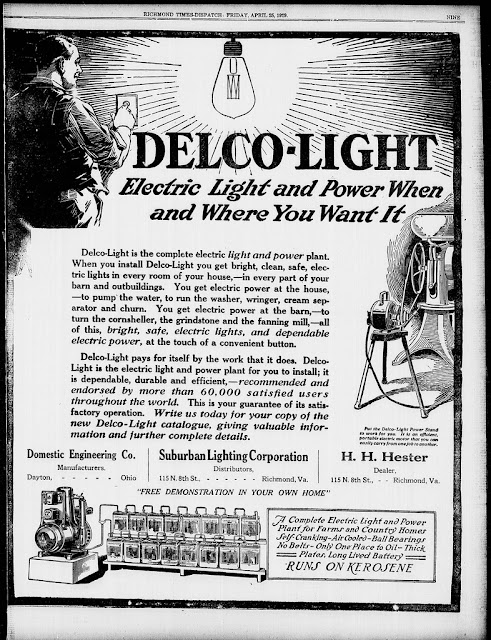From Our Friends
Abolene
Mr. J.E. Ridings has been suffering from a light stroke of
paralysis for the past week. Physicians say it is not serious.
A joint debate will be held at Melvin Hill school house next
Saturday night. Green river and Melvin Hill. Subject: “Resolved that a league
of nations should be formed, and that the United States should join it.”
Green River school is progressing nicely with a good
attendance even though there is a great deal of work that should be done by the
children. But we are proud that the parents are making the sacrifice.
Mountain View
Mr. Hobart Jackson of Hendersonville spent Saturday night
with home folks.
Mr. Henry Garrett was a pleasant caller of Miss Carrie
Jackson Sunday afternoon.
Mrs. Martin McCrain was the dinner guest of Mr. and Mrs.
H.H. McCrain Saturday.
Mr. Callie Halford and Mrs. Maude (Cochran) Halford were
happily married last Saturday morning, Rev. J.T. Ruppe tying the knot.
Red Mountain
The farmers visit Spartanburg very often here of late with
apples, cabbage, etc.
Mr. Reuben Wilson of Spartanburg spent Saturday night and
Sunday with his father, T.N. Wilson.
Mr. Ernest corn jumped from a car near Mill Spring last
Sunday, and was very seriously injured, but we hear he is much better.
Miss Lizzie Lee Wilson was the dinner guest of Miss Martha
Jackson Sunday.
Miss Mamie Wilson spent last week end with her parents on
route 1.
Miss Fannie Biddy was the guest of Miss Esther Wilson
Sunday.
Misses Ola Haynes, Sue Jones and Mr. Dock Wilson entered
school at Red Mountain Monday.
Mr. Clarence Whiteside of Fruitland Institute spent Sunday
night with his parents, Mr. and Mrs. N.L. Whiteside.
We are having plenty of corn huskings at this time.
Mr. and Mrs. King Lawter left last Wednesday from Alexander
Mills.
Several from here went to the party at Mr. W.D. Helton’s
last Thursday night.
Mr. and Mrs. E.F. Ruff, Mr. and Mrs. E.C. Lynch, Mr. and
Mrs. N.L. Whiteside and Furman Jackson motored to Hendersonville and other
places last Saturday.
Melvin Hill
Mr. and Mrs. Joe Morris of Cliffside called at Mr. and Mrs.
Tom Waldrop’s Sunday.
Miss Love of Spartanburg, the good nurse who was as a
visiting angel among the flu sufferers here last winter, spent last week at the
home of Mr. and Mrs. S.S. Laughter.
Frosts have been letting up on us for several days now, and
we are having pleasant Indian summer weather once more.
Fishtop
Just the kind of weather all like, cool and bracing.
It seems a little odd to see Wm. C. Pace drawing the reins
over his father’s mules, who has been away attending to Uncle Sam’s business
for 13 years. He talks of resigning his office in Panama at $175 per month and
coming back to the mountains of the old North State, raising stock and fruit
and enjoy life.
Elder S.P. Jones and daughter, Manda, of Cherokee, S.C.,
were pleasant visitors, both on business and pleasure, a few days last week.
A dog found a box that was set for rabbits one night last
week and bagged the rabbit in the box and rolling it over the field for several
hours, when finally he turned him out and we got to sleep some.
Quite a crowd of Fishtop youngsters went to Hendersonville
Friday last.
Rev. Jackson failed to fill his appointment.
Newt Case visited in the lower section Sunday.
Misses Pearl and Vina Morgan visited Miss Flora Bradley
Sunday afternoon.
J.B. Bradley has been and is yet suffering with a swollen
finger, caused by a briar sticking in it.
Mill Spring Route 1
Mr. and Mrs. A.A. Edwards were made to rejoice when their
son, Tench C. Edwards, returned home for a few days’ visit. He has been away
from home almost three years, and everybody was glad to see him home again. He
is visiting relatives in Spartanburg at this writing and will leave soon for
Camp Taylor, Ky. He hopes to get his discharge in March.
Miss Dorcas Edwards, who is in school at Valle Crucie, N.C.,
was home on a short visit last week.
Mr. A. Ogle and family are moving to South Carolina this
week. Their many friends will miss them and hate to see them leave.
Mr. and Mrs. L.H. Sheehan of Inman, S.C., visited at A.A.
Edwards’ Saturday and Sunday.
Born to Mr. and Mrs. Willie Gilbert on last Saturday, a son.
Miss Mossie Edwards, who has been with home folks for
several days, returned to Tryon Monday.
J.T. Edwards has purchased a Ford truck.
Prayer meeting was conducted by R.L.D. Gilbert at the home
of J.C. Griffin last Wednesday night.
Mr. Bert Edwards was a caller on route 2, Sunday.
Mr. Talmag Allen was a caller on the route Sunday.
Some nice watermelon was served at the home of A.A. Edwards
a few days past. Don’t you wish you had been there?

